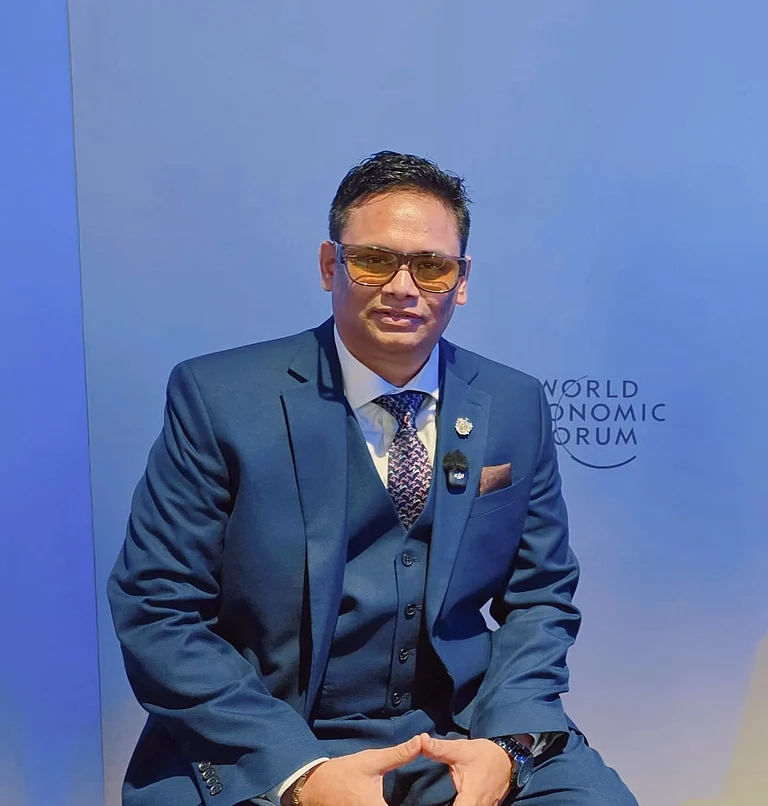AS Chief Minister Farooq Abdullah and his men took the oath at the plush Convention Complex on the shores of the Dal lake on October 8, Srinagar reeled under yet another bandh called by the Hurriyat Conference and other separatist Kashmiri groups. Still living under the fear of the gun, most Kashmiris kept indoorsa grim reminder of the task Farooq has on his hands to bring a semblance of peace in the Valley.
For the first time in Kashmirs history, an elected government was sworn in outside the Raj Bhavan premises. Long before the ceremony, which was attended by a galaxy of politicians from V.P.Singh to Rajesh Pilot, troops made elaborate security arrangements.
As National Conference (NC) supporters cheered, an emotional Farooq took the mike to spell out his plans. First, he announced a 26-member ministry and swore to shed his last drop of blood for the country, reaffirming his faith in the Indian Constitution. But strangely, he didnt mention a word about the suffering Kashmiris had endured over the past seven years of strife. Neither did he spare a moment for the 40,000 Kashmiris who had fallen to the bullets of militants and security forces.
It was left to former prime minister V.P. Singh to talk about peace, to call for making the borders not graveyards or cremation grounds but zones of peace and amity. He also talked about Kashmiriyatand the need to preserve Kashmirs distinct identity and spread its message of love.
Two days later, Farooq too made amends. In an interview, he referred to the large-scale killing of Kashmiris and talked about those languishing in jails; and those who have suffered at the hands of militants and security forces. Farooq apparently took this step after he was told about the negative impact of his swearing-in speech on the people.
The people are unhappy on another countthe size of his ministry. After his arrival from New Delhi, Farooq had said he would be content with having just eight to 10 ministers. But it seems that he had to bow to demands of his party, especially the powerful Mohiudin Shah-led lobby, and expand the cabinet to 26. That Farooq is working under pressure is evident from the selection of ministers. The argument that such a large ministry was needed to give representation to all regions and all sections of the people does not hold as many areas have been totally ignored while others have been over-represented. For example, the south Kashmir districts of Anantnag and Pulwama, from where 15 NC nominees won, have to be content with just three berths in the ministry. The tiny Ladakh region, from where the NC bagged three of the four seats, has three representatives too.
The inclusion of Shia leader Moulvi Iftikhar Ansari in the cabinet also comes as a surprise. The Moulvi contested the election on a Congress ticket and, even after joining the ministry, is yet to resign from the party. When Congress President Sitaram Kesri was asked if the Moulvi had sought the party high commands permission to join the NC government, he said he was in the dark about party affairs in Kashmir. Kesris query: "Did he (the Moulvi) contest as Congress candidate?"
Even for the portfolio distribution, Farooq had to give in to various pressure groups within the NC. Abdul Rahim Rather and Mohammad Shafi, two Farooq confidants and votaries of greater autonomy, are unhappy: Abdul Rather, finance minister in the previous government, has been shifted to agriculture and Shafi takes his place. Similarly, Mustafa Kamal has been denied his favourite Public Works Ministryit was handed out to Mohiudin Shah, who has emerged as one of the key players in the NC. Abdul Qayoom, who resigned as state Janata Dal president, on the eve of elections to join the NC, has been rewarded with the education portfolio.
For the time being, Farooq has retained important portfolios like administration, planning and home. But what has raised quite a few eyebrows is the appointment of Ali Mohammad Sager, known for his arrogant ways, as state minister for home. The coming days are going to be crucial for Farooq, who has been making hefty promises to the people, both on the political and economic fronts. He has talked about setting up high-powered committees to discuss issues like greater autonomy, release of Kashmiri detainees, misappropriation of developmental funds and unemployment. But first, Farooq has to ensure the cooperation of the bureaucracy, which has been functioning almost independently, accountable to none. The key question is whether the chief minister, on his second term, will be able to handle the pressure.


























